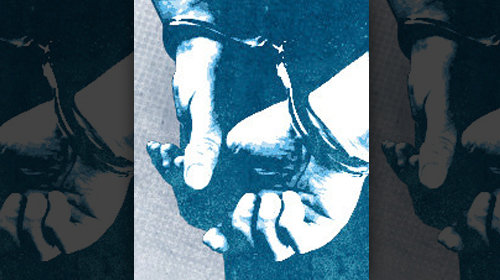
Today, the U.S. has the highest incarceration rate of any country in the world. With over 2.3 million men and women living behind bars, our imprisonment rate is the highest it's ever been in U.S. history. And yet, our criminal justice system has failed on every count: public safety, fairness and cost-effectiveness. Across the country, the criminal justice reform conversation is heating up. Each week, we feature our some of the most exciting and relevant news in overincarceration discourse that we've spotted from the previous week. Check back weekly for our top picks.
Previous posts have surveyed the many reform bills in play across the states. This week, we'll take a more detailed look at a major reform effort, Oregon's . As it is in most states, Oregon's prison population and costs have been ; last year, Gov. Kitzhaber decided to study of the state's prison system and look for ways to reverse the trend. The study without action. In December, a commission made , which were turned into HB 3194.
The bill makes a number of significant changes. It eliminates mandatory minimum sentences for some drug offenses and for several serious offenses, including first-degree sexual abuse, second-degree assault, and second-degree robbery. The bill also makes more defendants eligible for alternatives to prison, reduces sentence lengths for some property offenders, and allows prisoners to earn earlier release from prison.
HB 3194 is not the only bill on the table, though. is an alternative proposal drafted by a prominent prosecutor who believes HB 3194 does too much. His bill excludes almost all of the reforms listed above, focusing instead on probation and systemic evaluation. A joint legislative committee is currently deciding which bill will move forward.
HB 3194 will have a much larger impact on the state's prison population, but faces a more challenging path to passage. Because most of the mandatory minimums it repeals were , it must be approved by two-thirds of the legislature.
For more on HB 3194 and its much more limited counterpart, see:
- The Oregonian: ""
- Salem Statesman-Journal: ""
- Cascade Policy Institute Report:
- Willamette Week: "The Hard Truth about Oregon's Prisons: They Work"
Here are some other interesting items from the past week:
- A new national poll from The Pew Research Center found that . Among the reports more interesting findings is this: "There is no significant difference in lifetime or recent use between people in states with some form of legalized marijuana and those in other states."
- Der Spiegel published a what's happened in Portugal since the country decriminalized drug possession in 2000. Basically, if Portuguese police find someone with less than 10 days' worth of a controlled substance, they seize the drugs and tell the person to report to a health commission. There is no arrest, no fine, and no jail. The commission's goal is to encourage participation in rehab, but nothing is required. Even those who fail to report are only sent reminders. Twelve years after the policy change, adult drug use is up mildly, but teen drug use is down. Rehab participation is way up, and HIV infection among drug addicts is falling steeply.
- Over at The Atlantic, Conor Friedersdorf published a pair of noteworthy drug-law articles this week. In the first, he discusses the case of a 46-year-old Florida man who received a to a police informant. In the second, he makes the .
- In a speech this week, U.S. Attorney General Eric Holder inveighed against long mandatory sentences: "Too many people go to too many prisons for far too long for no good law enforcement reason. It is time to ask ourselves some fundamental questions about our criminal justice system. Statutes passed by legislatures that mandate sentences, irrespective of the unique facts of an individual case, too often bear no relation to the conduct at issue, breed disrespect for the system, and are ultimately counterproductive. It is time to examine our systems and determine what truly works. We need to ensure that incarceration is used to punish, to rehabilitate, and to deter ÔÇô and not simply to warehouse and forget." You can .
Learn more about overincarceration and other civil liberty issues: Sign up for breaking news alerts, , and .
